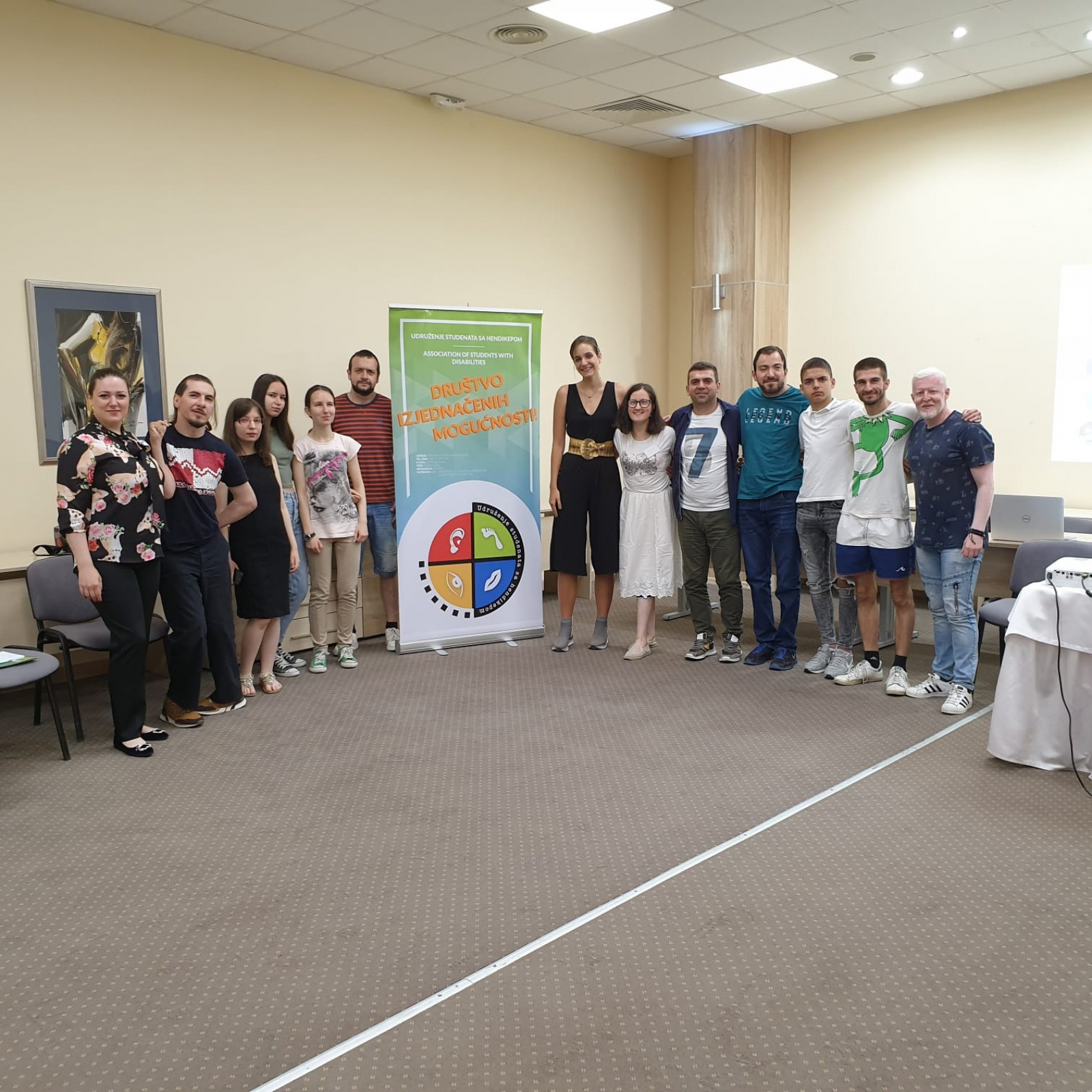
SHARE
Partner Profile: The Association of Students with Disabilities
In support of NDI’s commitment to increasing the inclusion of marginalized populations in political processes, we’re highlighting the essential work of partners who are at the forefront fighting for greater levels of equality, shifting norms and perceptions, and reducing barriers to political participation for persons with disabilities.
NDI interviewed the Association of Students with Disabilities (ASD), a partner advocating for the rights and equal opportunities for youth and students with disabilities in formal and non-formal education, employment and social and political activism in Serbia. ASD told us how they are working to deconstruct barriers that limit access to political participation and strengthen cross-disability collaboration to raise the visibility of all disability communities in Serbia.
What does accessibility mean to you and/or your organization?
For us, accessibility is the basis of the inclusive society we fight for. Without accessibility, there are no equal conditions and social inclusion. The Association of Students with Disabilities promotes the importance of accessibility for all in all of its activities.
Describe some of the ways that people with disabilities (PWDs) in your country are participating politically. What challenges or barriers to political participation remain?
The political participation of people with disabilities in Serbia is at a low level. On the one hand, political entities in Serbia have not developed sufficient awareness of people with disabilities as active members of society who contribute to the work of a party or movement. On the other hand, people with disabilities struggle to engage in political activism due to existing prejudices and stereotypes that accompany them in all areas of life. The result is that political parties and movements view people with disabilities only as passive recipients of assistance; and unfortunately, people with disabilities who are also active in politics have only tokenistic roles.
How is your organization working to address these barriers/challenges and to eliminate discrimination against PWDs in your country?
Through all its activities, the Association of Students with Disabilities raises awareness of the rights of people with disabilities and the importance of social inclusion. The Association addresses common forms of discrimination that prevent people with disabilities from being able to perform activities on an equal basis with others. The Association of Students with Disabilities continuously raises awareness among the general public about the rights of people with disabilities and fights discrimination. The Association also seeks to empower people with disabilities to be better self-advocates and act to protect their rights.
ASD 2.png

As the world continues to battle COVID-19 two years later, has the pandemic presented any opportunities for your organization and/or for PWDs in your country?
Unfortunately the pandemic did not bring new opportunities for people with disabilities in Serbia, but rather brought to the surface many problems and challenges – leaving people with disabilities feeling neglected and invisible. The negative impact of the pandemic gave the Association the opportunity to further emphasize the disadvantages people with disabilities in Serbia face, and to draw attention to their rights and the vulnerabilities they faced during lockdown.
In the past year, can you briefly share a success story from your organization’s contribution to strengthening the disabled persons movement in your country or within your region?
The Association of Students with Disabilities launched an initiative to build a network of cross-disability organizations that share common values to promote the diversity of the disability community so that all persons with disabilities, including those with invisible disabilities, are supported in the disability movement in Serbia. Given many organizations only represent the rights of those with visible disabilities, the Association recognized the need for such a network to raise the visibility of those with invisible disabilities and ensure everyone is able to benefit from financial and social support.
What impact has NDI’s partnership had on your organization?
Cooperation with NDI has greatly contributed to the work of the Association of Students with Disabilities because it has enabled us to address the important topic of political participation of people with disabilities; to empower people with disabilities for social and political activism; and to support our advocacy for the rights of people with disabilities. NDI’s support has been especially useful in helping us to build relationships with political parties and movements, and explore ways to cooperate on improving the position of people with disabilities in Serbia. Also, NDI provided the Association with capacity-building in areas where we needed it, and thus contributed to our work in the long term. The activities organized by the Association with the support of NDI are sustainable, and lay the foundation for our work on political participation of people with disabilities.


